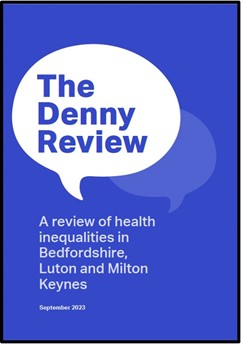Based on its long-running "Understanding Society" research, the University of Essex held a conference in London focussed on "Political engagement in Britain", and brought together an impressive gathering of experts to discuss the latest data and thinking on an important subject for mature democracies.
There is a lot of research about voting – how older generations more frequently go to the polls, and how younger people feel disenchanted and disconnected from the political process. It's been discussed as well:
- How economic deprivation discourages people from political involvement;
- How the political engagement of those UK citizens who are foreign-born is more influenced by their immigration experience (e.g., the welcome they received);
- The importance of parental education in youth political participation;
- How BREXIT has demolished many of the traditional demographic behaviour patterns, and education became a primary determinant of political allegiance;
- How other public engagement activities like volunteering show similar patterns of behaviour.
It seems we are a country of two halves. Those who are sufficiently interested to vote, and those who, for whatever reason, do not – and these include children and young people below voting age.
To many people’s eyes, this explains why public policy seems heavily lopsided. Because older people are more likely to vote, policies that favour their generation have received priority over those that help young people. That, in turn, adds to the disillusion of youth which further reduces their propensity to participate, reinforcing the vicious circle and the decline in their public involvement.
In democratic terms, inequality isn’t just about how many Cabinet Ministers went to Eton. It is the bias that creeps into public policy decisions at all levels.
Too many choices are made by unrepresentative organisations and individuals, and this is despite the efforts of public engagement and consultation professionals to encourage more people from disadvantaged backgrounds and young people to contribute their thoughts and ideas.
A key rationale for consultation is to help redress the balance by gathering a wider range of voices so that more stakeholder opinions can be injected into a debate before decisions are made. They don’t always succeed.
Inequality and the invisible stakeholders
This prompted me to consider the whole range of organisations that assiduously cultivate stakeholder relationships. How do they allow for those of whom they are unaware?
Just like political parties that struggle with invisible voters, why does it matter how one accommodates invisible stakeholders?
It matters because, in terms of public services, inequality in service provision tends to reflect inequality of representation. No amount of theoretical requirements assessments make up for having real people with real issues around the specification table.
A great example of this is the sad state of health inequalities in the UK.
Parliamentarians feel they’ve done their bit. Among the many other statutory factors, they’ve insisted Managers take into account, as they administer the NHS, to reduce ‘health inequalities’ as a requirement. It hasn’t worked.
Lessons from the Denny Review

As an excellent example, look at recent work undertaken by the NHS in Bedford, Luton, and Milton Keynes. The Denny Review takes its name from a local clergyman who spearheaded the project that was partly inspired by the 75th anniversary of the Windrush immigration.
It sought to identify health inequalities in an otherwise prosperous part of the south of England.
Using the voluntary sector and Healthwatch to interview large numbers of those with demonstrably worse health outcomes, the research identifies the weaknesses manifestly evident in the current NHS approach to its public and patients:
- It highlights so many working practices, biases and unthinking unfairnesses that affect groups that society neglects;
- High on the list of those that are most neglected is the Roma community - it considers West African women, Bangladeshi families, homeless people, and those with mental health or learning difficulties;
- It finds common problems, many involving matters of literacy that affect people’s access to healthcare;
- It identifies a huge gap in cultural awareness and a lack of empathy among many front-line staff like GP receptionists.
Its detailed recommendations are well thought-through and should provide a useful checklist for many working in health and social care.
No doubt there are similar initiatives worth studying, so there is room for optimism. However, the underlying truth is that communities such as those covered in the Denny Report sank below the radar. As stakeholders, they have been largely invisible.
Looking ahead
We need tools, techniques and management disciplines that can rectify the balance. We need a management mindset that positively discriminates in favour of groups, organisations and individuals from seldom-heard communities that can be assisted to voice their concerns.
The challenge is to design and implement representative and consultative machinery with which they are comfortable, and for that reason, I look forward to watching how the Integrated Care Board (ICB) that commissioned this particular Review approaches the problem. It has secured reasonable funding, but there is more to finding solutions than money.
Beyond the NHS there are other organisations, many of whom are tackling stakeholder engagement professionally.
They also need to ask the question “Have we many invisible stakeholders?” and accept that we all have a role to play in increasing the propensity to participate.
Written by Rhion Jones
Rhion Jones was the Founder Director of the Consultation Institute and is an acknowledged authority on all aspects of public and stakeholder engagement and consultation. He advises Tractivity and will be contributing expert analysis and commentaries on current issues.
Rhion now publishes thought leadership articles regularly as the ConsultationGuru.

